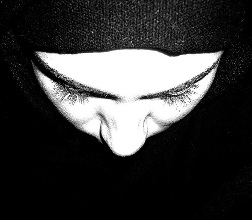Islam is a religion of ease and mercy. Allah, the Exalted, says:
Allah wants ease for you, not hardship. (Quran 2:185)
Prayer remains an obligation on every Muslim in any situation. It should not be abandoned under any circumstances, including illness, travel, or fear.
Prayer establishes the connection between a person and their Creator and must never be interrupted or severed, but instead performed in a lightened form when there is an Islamically acceptable excuse.
1- Travelers
• The Islamic Law permits those traveling for approximately eighty kilometers or more to shorten the four-Rak’ah prayers to two (called Qasr) and to combine two prayers (called Jam‘) at the due time of either of them in order to eliminate hardship and facilitate matters for the travelers.
• Concession of shortening prayers during travels:
It grants permission for travelers to offer the four-Rak’ah prayers as two Rak`ahs only (namely, the Dhuhr, the `Asr, and the `Isha’). There is no shortening of the Fajr or the Maghrib Prayers.
• Concession of Combining Two Prayers:
It grants permission for travelers to offer two consecutive prayers, namely, the Dhuhr Prayer with the `Asr Prayer, and the Maghrib Prayer with the `Isha’ Prayer during the time of the earlier or later one, as appropriate for the circumstances of the individual involved.
In clearer words, to bring the `Asr forward and pray it with the Dhuhr (called early combination) or delay the Dhuhr and pray it with the `Asr (called late combination). The same procedure applies to combining the Maghrib and the `Isha. The Fajr Prayer cannot be combined with any other prayer. It must be prayed on time.
• To avail themselves of the concessions of traveling, travelers must leave the built-up area of their city or village. Most scholars also stipulate that the journey must be for a lawful purpose.
• Traveling is the only legitimate reason for shortening prayers; it is not allowed in situations other than traveling. As for combining prayers, the reasons permitting it include necessity and valid excuses. This makes it possible when needed.
Accordingly, combining prayers is permissible for travelers, and also for resident people (non-travelers) when it is too difficult for them to offer each prayer on time.
For example, someone who is sick, someone who is feeling threatened or afraid (with regards to personal safety, property, or honor), or someone who is busy with a task that cannot be interrupted, such as a student taking an exam or a doctor carrying out a surgery.
This is on the condition that combining prayers must not become a habit, regularly performed, and is limited to the difficult or inconvenient situation that faces the person.
2- Sick People
Conscious, sane patients should pray as their condition allows and should never abandon Prayer. No sane Muslim who has attained puberty shall be exempt from offering Prayer, except in the particular case of a menstruating or postpartum woman.
During that period, a woman is excused from the obligation of prayer until the bleeding stops and she becomes purified. Because of Allah’s Mercy and Kindness towards women, she does not have to make up the prayers she misses during that time.
• The tolerant Islamic Law has eased the duty of prayer for sick people by allowing them to pray according to their condition and physical state. Allah, the Majestic and Glorious, says:
Allah burdens not a soul beyond its capacity. (Quran 2:286)
• Al-Bukhari narrated in his Sahih Book of Hadith that Messenger Muhammad (peace and blessings be upon him) said to `Imran ibn Husayn:
Pray standing; if you cannot, then sitting; and if you cannot, then lying on your side.
Al-Nasa’i added in his reported version of the hadith:
If you cannot, then lying on your back. Allah does not burden any soul beyond its scope.
• Sick people should pray as their condition allows. If they cannot stand, they can pray while sitting. If they cannot sit, they can pray while lying on their side, preferably the right side, and facing towards the Qiblah. They should bow and prostrate using gestures. If lying on their side is difficult for them, they may pray while lying on their back with their feet facing towards the Qiblah.
• A sick person who can stand, but cannot bow or prostrate, is not excused from the obligation of standing. They should pray in a standing position and make a head gesture for bowing (by lowering their head or bending their back a little), then take a sitting position and make a head gesture for prostration.
• A sick person who cannot bow and prostrate should perform these prayer postures with gestures of the head only, making the gesture for prostration more inclined or lower than that for bowing.
• A sick person who can only prostrate should bow and make a gesture for prostration.
• If it is too difficult for the sick person to offer each prayer at its due time, they can combine the Dhuhr Prayer with the `Asr Prayer, and the Maghrib Prayer with `Isha’ Prayer at the time of the earlier or later one, according to what best fits their circumstances and ability. - aboutislam.net




_001.jpg) In
In _001.jpg) Islam is a holistic way of life, taking into account physical, spiritual, and emotional well-being, each a separate but overlapping part of the structure of a human being. God created us with a purpose; to worship Him, (Quran 51:56) but He did not abandon us to a world of instability and insecurity. He gave us a book of guidance, the Quran, and the example of Prophets and Messengers to explain that trusting in God was the way for us to achieve success in this life and in the hereafter.
Islam is a holistic way of life, taking into account physical, spiritual, and emotional well-being, each a separate but overlapping part of the structure of a human being. God created us with a purpose; to worship Him, (Quran 51:56) but He did not abandon us to a world of instability and insecurity. He gave us a book of guidance, the Quran, and the example of Prophets and Messengers to explain that trusting in God was the way for us to achieve success in this life and in the hereafter.
 Dictionary.com defines Christmas as the annual festival of the Christian church commemorating the birth of Jesus: celebrated on December 25 and now generally observed as a legal holiday and an occasion for exchanging gifts. It goes on to explain that Christmas time or the Christmas season extends from the December 24
Dictionary.com defines Christmas as the annual festival of the Christian church commemorating the birth of Jesus: celebrated on December 25 and now generally observed as a legal holiday and an occasion for exchanging gifts. It goes on to explain that Christmas time or the Christmas season extends from the December 24
